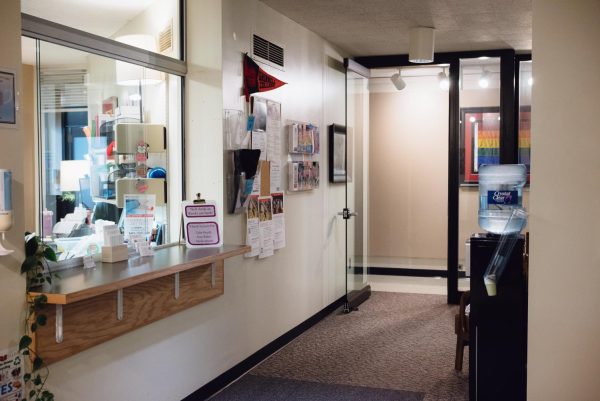Iowa Governor Kim Reynolds signed House File 2673 in May 2024. On July 1, 2025, this bill will consolidate Iowa’s 13 Mental Health and Disability Services (MHDS) regions into seven new behavioral health districts. The move aims to streamline services in mental health care and promote more equitable access to care statewide.
In doing so, Reynolds inserted Iowa into a national conversation about inequities surrounding mental health care in rural areas. Over 60 percent of people in rural America reside in a designated mental health provider shortage area. Though HF 2673 will provide a new, streamlined structure, it will not increase funding. Some advocates say both approaches are necessary.
In 2023, regional authorities of the MHDS regions in Iowa received slightly over $121 million of state aid. However, there are just 10.6 mental health inpatient beds per 100,000 Iowans.
Poweshiek County, located halfway between Des Moines and Iowa City, is a designated Geographic Health Professional Shortage Area (HPSA) that is currently grappling with the effects of an overworked mental health care system. UnityPoint Health’s 2022 Community Health Needs Assessment highlighted mental health as the top community issue, with only an estimated 9.1 providers for every 10,000 people in Poweshiek.
“I think we have a lot more mental health issues than what we even realize … A lot of people don’t want to come forth and say, I have a problem,” said Jacki Bolen, Poweshiek County Supervisor-elect. “I don’t care who you are, at some point in your life, you’ve needed some help.”
Poweshiek mental health providers attempt to increase access to services amid high caseloads
For mental health counselor Dylan Kastner, who used to work at a Community Mental Health Center (CMHC), the reality was that counselors were faced with massive caseloads.
“CMHCs get additional funds and resources to support people in the community, but they also have to follow a bunch of extra rules that basically involve going above and beyond,” Kastner said. “Because the therapists have so many different people, it’s harder for them to meet the needs of everybody.”
Across the country, CMHCs receive state funding to provide outpatient mental healthcare within one or more counties. Capstone Behavioral Health is the designated CMHC for Poweshiek, Jasper and Marion counties.
Julie Smith, director of Capstone, said they see all patients regardless of ability to pay. Her clinician's caseloads were “way higher than I would ever like them to be,” and she acknowledged that burnout has been a problem pushing professionals away from the field.
“I wish that I had the time to try to address it and to try to make it better, but I’m just hopeful that the state is working on trying to improve mental health services and access,” Smith said.
Now at Pathways Counseling LLC, a private mental health clinic in Grinnell, Kastner said he has seen a reduced caseload of patients. “It’s kind of a rock and a hard place situation, because you’re either turning away people or you’re giving people subpar care,” he said.
The S&B spoke to multiple providers, all of whom described a non-centralized structure where providers, patients and insurance companies interact without governmental involvement. David Brown, behavioral health state specialist at Iowa State University, said that the lack of an “overarching direction” has led to a “wild west” provision landscape.
“We kind of do our own thing based upon our funders' requests, and we work with very specific populations,” he said. “What the government’s primarily involved in is the funding for those individuals that do not have insurance. It’s more on the insurance companies and how willing they are to fund mental health services, or how many barriers they put up.”
“The way a lot of things are funded, it’s like, what’s the most efficient way we can spend the least to get an outcome?” Kastner said. “That leads to a lot of minimal services … creating more mental health issues, which perpetuate the system.”
Across Iowa, individual organizations have tried to improve policies and outreach. Smith, who also serves on the Central Iowa Community Services (CICS) governing board, said that they are trying to create access centers throughout the state so small town residents can reach services. Meanwhile, UnityPoint Health-Grinnell’s 2023-2025 Implementation Strategy includes goals of providing therapy for uninsured patients and collaborating with other groups to improve low-income access to mental health care.
At the Iowa State University (ISU) Extension and Outreach office, training programs in mental health first aid are offered to businesses and communities and a free, confidential hotline is available 24/7. Brown, who directs programming, calls it “pre-intervention.”
“We have 100 county offices across the state,” he said. “We’re trying to provide a better bridge so that individuals who need the service at least have someone to talk to until those services become available.”
Bolen said that funding was an ongoing issue. “Quite frankly, I’m getting a little exhausted from hearing, ‘Well, there’s just not enough funding,’ [and] so that’s where it dies,” Bolen said. “I think we need to figure out a way to help make this happen.”
Kastner said that a large systemic problem is the treatment of mental health professionals.
“Poweshiek does a great job of funding mental health services, but if you don’t have people that are available to do them, the money is only going to go so far,” he said. “Therapists are treated like the bottom rung of the healthcare world… We pay people fast food level wages to deal with people who are in mental health crises, having panic attacks, hallucinations, violent behaviors.”
“If you’re a psychiatrist, you can go any place in the nation,” said Brown. “It has to be a certain individual who’s really willing to work with a rural population.”
Robin McKee, a service coordination officer at CICS, emphasized the difficulty in finding professionals fast enough to meet the growing demands of rural areas. “Once you find a therapist, or once you get a medication manager to come to a community, they are booked immediately. And then it’s like, ‘How can we get another one in here?’” McKee said.
Yet, McKee also suggested that the situation may not be as dire as previously understood.
“Poweshiek is a small county, and a lot of people drive to a larger county to get those services,” she said. “I wonder if we would still be considered a mental health desert now that there are so many virtual options for therapy.”
Telehealth seen as solution to increase access, despite flaws
The rise of healthcare administered remotely, also known as telehealth services, came as a result of several key policy changes passed by the United States Congress in March 2020. Telehealth has since boomed in popularity, with telemedicine encounters increasing 766 percent in the first three months of the COVID-19 pandemic.
Capstone was one such provider that started offering telehealth services during the pandemic.
“It’s sometimes hard for people to have funds to make an in-person appointment,” Smith said. “We do like to see the patients in-person, but… I feel like Capstone does a great job of serving the people.”
At Grinnell College, Student Health and Wellness (SHAW) also utilizes telehealth for student benefit.
“It’s [telehealth] not perfect, obviously, and a lot of students still would prefer an in-person appointment, but it’s kind of as close as we can get to meeting all of those [students’] needs and preferences,” said Sarah Newell, a staff nurse at SHAW.
Many out-of-state college students are not able to receive continuous care, because they split their time between their home state and the state they attend college in. Beth Perlman, director of counseling services at SHAW, said telehealth is one way to address this issue. However, many therapists are licensed only in the state they reside in, meaning that they cannot treat patients out of state using telehealth.
Iowa House File 671, signed into law in June 2023, entered Iowa into the Interstate Counseling Compact, which enables a Commission to grant individual providers the privilege to practice in the 37 other states who have entered the compact so far. The Commission hopes to start granting privileges to providers by the end of 2024 — however, there is not a definitive timeline as to how long this will take.
Grinnell College plays a role in the mental health conversation
When Newell began working at SHAW in August 2015, she said there was only one provider in the town of Grinnell that provided medication management services.
“There have only been one to three providers in town at any given time until more recently,” Newell said.

Grinnell College, which has a $2.67 billion endowment, brings resources that the surrounding county may not have. It also brings approximately 1,750 students, all with varying mental health needs of their own.
38 percent of college students nationwide exhibit moderate or severe depressive symptoms, and 34 percent exhibit moderate or severe anxiety symptoms, according to the 2023-24 Healthy Minds Survey.
Conversations surrounding student mental health at Grinnell College have been happening even prior to the pandemic. In 2016, former College President Raynard S. Kington appointed a Student Health Mental Task Force, which compiled a report identifying anxiety and depression as issues that “require sustained and serious attention” on campus.
More recently, College staff are seeing a high level of demand for mental health services as well as “higher rates of suicidal ideation relative to national average, and higher than it has been in a decade,” according to a report from Build a Better Grinnell.
Newell said that to address the lack of medication management services in town, SHAW began offering a telepsychiatry service in December 2016 through the University of Iowa Hospitals and Clinics.
SHAW also provides individual counseling. Some students said these services are accessible, while others believe more could be done to increase accessibility and awareness of their existence.
“It’s [SHAW counseling] on campus, and it’s free. If I don’t use it, that’s kind of a waste,” Addie Persian `27 said. “The process so far has been way more accessible than I thought it would be.”
Andrew Lim `25 said that resources were more accessible in their hometown of San Francisco as compared to SHAW. “The process was a lot simpler,” Lim said. “If you know somebody is in crisis, there's not a good avenue through the school to do anything about it. You just have to hope that the person seeks out help themselves.”
Perlman also stated the importance of finding a good fit for students of all backgrounds, and said that SHAW currently has five therapists of color. “I think a lot of people, in general, want someone who has shared lived experience, which is understandable,” Perlman said. “We have a small team, but I think between us, we represent a pretty diverse range of identities, characteristics, and expertise.”
Raffay Piracha `25, who has seen multiple therapists, said that having a therapist who is able to relate to his experience as a person of color is important to him.
“He’s a white dude from Iowa, and you know, I’m a brown guy from Texas,” Piracha said of his first therapist in Grinnell, who he said was otherwise a good fit. “There were certain things I would talk about that didn’t really make sense to him.”
Piracha later began seeing a therapist at SHAW. However, he had to switch to a different therapist when he went home to Texas, and again during his semester abroad in the United Kingdom.
“I think therapists are becoming less available,” Piracha said. “It’s just high demand for them, right?”
SHAW also partners with local providers to refer students to. Perlman said that this year, their internal referral list includes about 100 providers in the town of Grinnell and across the state of Iowa.
“We redo it [the referral list] every year, and we reach out based on therapist characteristics, area of specialty, theoretical approaches, and any certifications,” Perlman said. “And the goal is, when we’re sitting down with the student, we can find someone who’s going to be a good match.”
Perlman said that being located in a mental health professional shortage area is challenging, stating that SHAW communicates with local providers about whether they are waitlisting clients and compensate by giving students a range of referrals.
“We really try to build those relationships,” Perlman said. “The providers in town are really great about referrals from us too… They enjoy working with college students.”
















